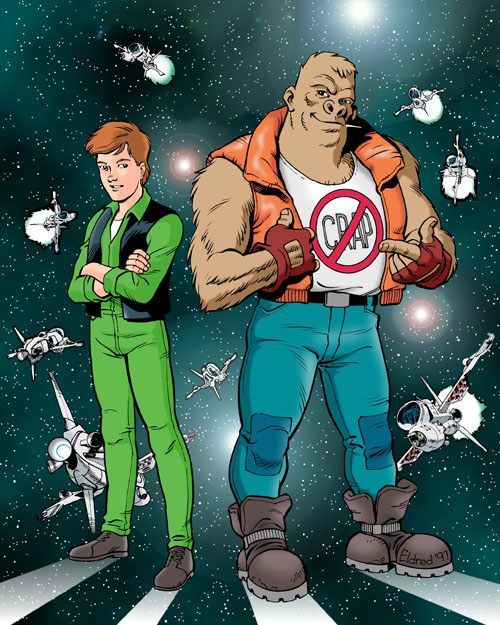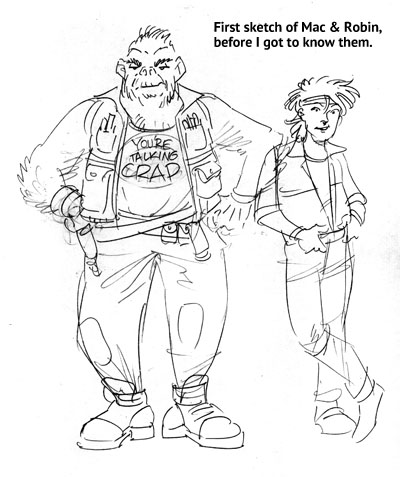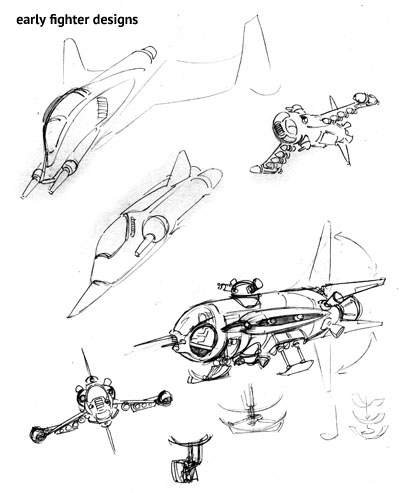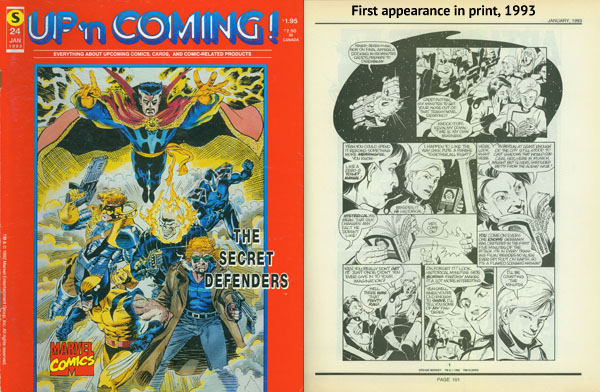Grease Monkey, 1992
It all started on a tiny little creative whim and a great big throbbing pustule of righteous anger.
The whim was this: to create a fun little comic strip about a diverse cast of non-super-powered characters finding their way through life. The anger came from the comic book industry’s lack of concern over the need for such comics – and its occasional hostility toward the very idea of them.
It was 1992, and the future didn’t look promising. More and more of the same old stuff was coming down the pike. More rage-filled superheroes, more soft-core Amazons, and more of the same junk that didn’t appeal to the mainstream public. It was always my feeling that the comic industry would stagnate if it didn’t work harder to broaden its readership, and it often seemed like I was alone in my concern. What was to be done? Well, everything starts with an act of creation, and as a comic book creator I felt it was my responsibility to come up with something to address this need.
So where did Grease Monkey come from? Several places. First, I’d always loved outer space SF action, so that was my backdrop of choice. Second, I’ve always had a respect for well-crafted war stories. War, like love, forces people to dig deep into themselves and learn the true source of their humanity. Against this tapestry, you can learn a lot about what makes us tick.
The thing about war, though, is that increasingly few of us have actually experienced one, so its value as a reference point is slowly eroding. For writing to endure and find a wide audience, it needs something universal and relevant to our daily lives. Therefore, I started thinking about the role of non-combatants – people living in a wartime environment, but not constantly placed in life-and-death situations. The non-combatant’s life is beset on all sides by bureaucracy, personal politics, stifling regulations, and emotional conflict – not unlike the lives of us “normal” people.
I’d been kicking around this notion for a few years, looking for a way to focus it, when inspiration came from a Stan Ridgway song called Overlords. The narrator of this song was a man laboring under alien domination, dreaming about going underground and “monkeywrenching” for the resistance. This is a term for acts of sabotage, but it also planted the image in my head of a battlefield mechanic whose job it is to keep the machines running. This was a character I could work with.
Still keying off the word “monkeywrenching,” I wondered what it might be like if the character were a gorilla. (Because, of course, as everyone knows, gorillas are the coolest animals on Earth.) That lit the fuse for everything that has happened since.
The next step was to decide where the gorilla came from and how he found himself among humans. I wrote an extensive backstory to explain this, which I’ve tinkered with over the years, to be revealed as the bits and pieces become relevant.
In choosing the setting for the story, I decided to place it inside a spaceship, a giant pressure cooker. And there would be many gorillas working alongside humans, not just one. A whole culture was beginning to form, in which the idea of a diverse cast expanded from gender and race to include a whole separate species. The possibilities for tension and conflict expanded right along with it.
The idea was getting complex enough now require a human focal character who would be immersed in this culture on behalf of the reader. To my surprise, that character turned out to be me. Robin Plotnik is exactly who I saw myself as most of the time, at least back in 1992; a hopeful, optimistic, well-meaning young buck who thinks he’s got it all figured out but is in for a lot of surprises. Robin’s personality and his reactions to things are much more like mine than I first intended, and I was utterly blind to this until other people began pointing it out later on. Once it became clear, the purpose of the project took on a whole new meaning.
I put a few more pieces into place and created the first episode, Art Lovers, in July/August 1992.
What continues to amaze me the most about Grease Monkey is the wealth of unexpected rewards it has brought my way. I should explain that I’ve always been a staunch advocate for the creative impulse. Whenever talking with beginning artists who want to draw comics for a living, I always make it a point to value originality and self-determination. Traditionally, the measure of true long-term success comes from how unique your vision is, not how well you follow someone else’s lead. To that end, I advocate that instead of waiting around for a big break, artists should look for ways to satisfy their own creative goals on their own time and use their freedom to their advantage (before it gets overtaken by deadlines).
Short version: don’t wait for permission.
Anyone who wants to see the value of this approach need look no farther than Grease Monkey. When I started, it only existed for an audience of one: me. I took time off from paying projects just to entertain myself with it. I knew one day I’d offer it to a publisher, but my primary purpose was to have the simple joy of creating it. I didn’t know then that when you risk a break from the daily routine to pursue your dream, you place yourself in the hands of fate, and there’s no telling what fate has in store.
So imagine my surprise when this happened: a few days after I finished drawing the first episode, I contacted a Canadian comics distributor, Styx International, on an unrelated matter. As it turned out, they knew my work already, and out of the blue they asked if I had anything new they could publish in their magazine/catalog, Up’N’Coming. As a matter of fact, I did. A few more days later, the deal was done.
Editors Joe Krolik and Brent Richard loved the first strip and immediately hired me to come up with five more. Fate had rewarded me for taking a chance. And this was only the beginning.
Writing and drawing these six episodes carried me into January 1993, by which time I’d moved across the country from snow-locked Michigan to sunny Southern California. This put me a lot closer to Hollywood, the magical kingdom where anything goes…
What you’ve just read is an excerpt of a much longer account that continues at the Grease Monkey website here. Once you’re done reading that, there’s a HUGE body of work to dig into. Enjoy!




